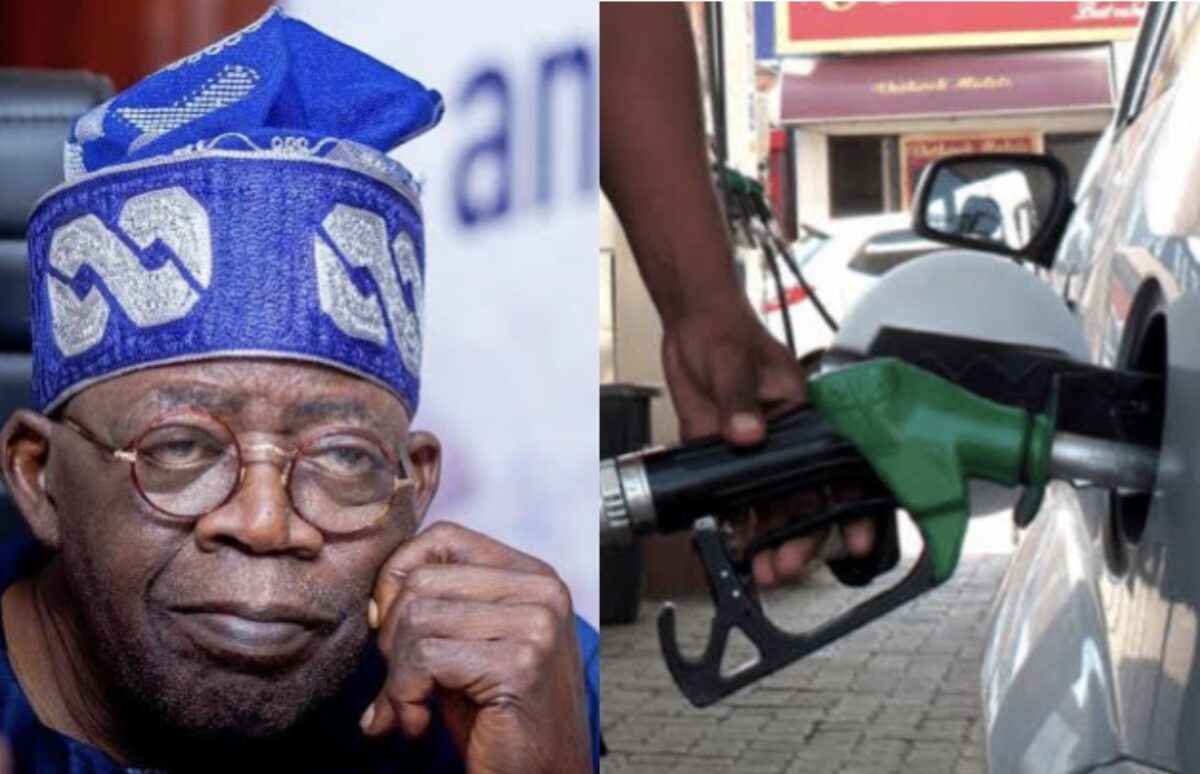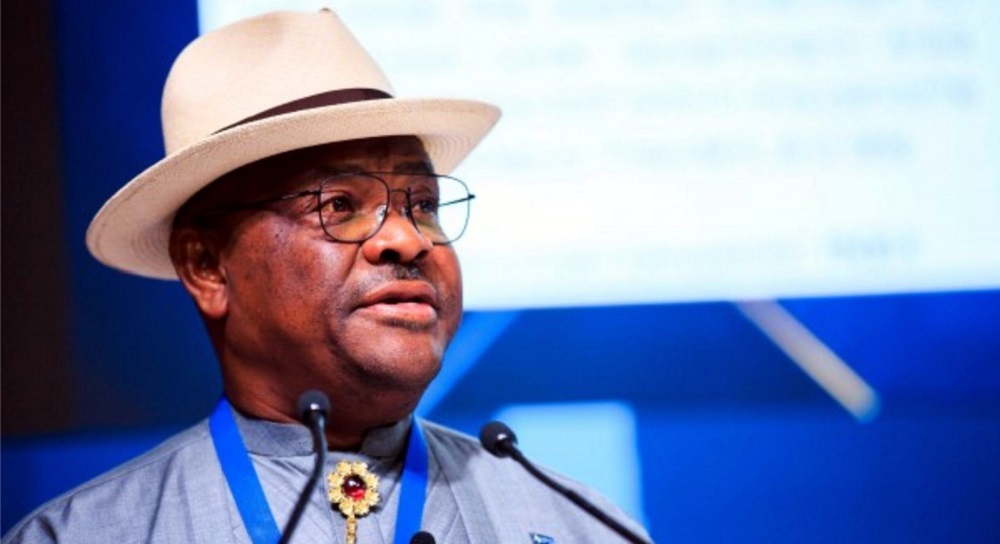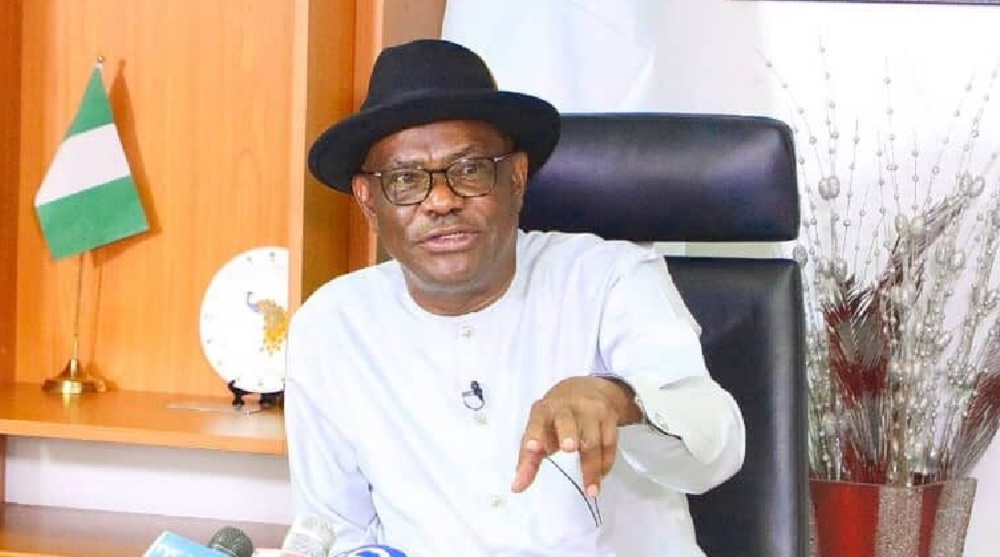News
FG Pays N1 Trillion Monthly As Petrol Subsidy — Pinnacle Oil MD

In a revelation that underscores the ongoing challenges in Nigeria’s oil sector, Pinnacle Oil and Gas Limited has disclosed that the country is incurring about N1 trillion every month on petrol subsidies.
This disclosure was made by the Managing Director/CEO of the indigenous oil and gas company, Robert Dickerman, during the Nigeria International Energy Summit (NIES) held in Abuja.
Despite the government’s efforts towards deregulation in the downstream sector, the persistence of such a hefty subsidy indicates a significant financial burden on the nation’s economy.
The subsidy mechanism, intended to make petrol affordable for Nigerians, has inadvertently resulted in the product being cheaper within the country compared to neighbouring nations.
This price disparity has been identified as a key driver for the smuggling of petrol across borders, further complicating the subsidy issue.
Speaking at the forum’s panel session six, which focused on Nigeria’s Downstream Sector, Dickerman highlighted the paradox that, despite substantial progress in the industry, the massive subsidy is a clear indication of the challenges still facing Nigeria’s oil and gas sector.
He said the situation not only affects the government’s finances but also impacts the operational dynamics of companies within the sector, like Pinnacle Oil and Gas, which operates across the entire downstream value chain.
Dickerman stated that the continued payment of subsidies at such a scale raises questions about the sustainability of such expenditures and the need for more effective policies to address the underlying issues.
He said, “Nigeria has a long history of allocating resources to oil and gas production at the expense of most other economic and social programs. To balance this, there has been a long-standing policy to mitigate consumer costs via palliatives such as fuel and food subsidies.
“But one of the net effects of oil money is underinvestment in local production, manufacturing and other value-added activities that could generate foreign currency through exports. There has also been a large under investment in the maintenance and upgrade of existing infrastructure including electricity, roads, health care, water, waste, education and financial infrastructure such as consumer credit.
As a result, we have a huge negative trade deficit, except for crude oil and LNG, and our banks are not sufficiently capitalized to support significant new capital programs.
“With legacy monetary policymaking currency exchange difficult, we desperately need Foreign Investment. This is a reality. So the best policy during this time of crisis is a national policy to transform our economy/regulations/laws to accommodate and encourage FDI.
“Foreign investors, foreign lenders and government-run DFIs have been very clear about what they want to see: Conservative fiscal policy, tackling corruption, enabling competitive markets, and enforcement of fairness in markets through policy, regulation and the ability to enforce contracts. Keeping that context in mind, I want to point out that there is still a massive subsidy in PMS, albeit in the FX portion of PMS Price, not the global price in dollars.
“The consequences of this subsidy are: The cost of gasoline in Nigeria is the lowest in Africa by far, which encourages smuggling out, further depriving Nigeria of value. Smuggling causes Nigeria to subsidize neighbouring countries even while our economy struggles. The cost is hurting the entire budget, Federal and State, as critical programs cannot be funded to pay this subsidy. It is currently calculated to be about 1 trillion Naira/month.
“Also, with this subsidy in place, ceasing subsidy payments would result in no petrol supply, if there are no refineries producing gasoline. All supplies come from the international market, which will only sell at market prices.
“There is no competition in bulk supply, as only the national champion owned by the government can import. Wholesale and retail prices are set based on their subsidized cost and they determine who gets supply. Without a competitive market, foreign investors are discouraged from investing in this sector in Nigeria.
“The solution to this problem seems obvious, even acknowledging the daily struggles most citizens and companies have today with reduced purchasing power, high inflation, high interest costs and high unemployment that exists today. Short-term palliatives have never resolved long-term issues in any nation at any time in history. We need long-term solutions.”
News
Po!n, betting sites recorded 162m Nigerian visitors in June – Report

A report by global data and business intelligence platform, StatiSense, has revealed that more than 162 million Nigerians visited porn and betting websites in June 2024.
According to the platform’s most recent data, which lists the top ten websites that Nigerians saw on their mobile devices in June, a sizable percentage of this traffic visited websites with gambling and pornographic content.
A post on StatiSense’s official X page revealed that a variety of search engines, social media apps, and betting platforms were among the most popular websites.
Notably, two pornographic websites, Xvideos and Xnxx, came in second and sixth place respectively with a total of 80.18 million visits.
In addition, Nigerian mobile users visited sporting websites 176.83 million times. Of these, 83.1 million visits were allocated to sports betting sites Sportybet and Bet9ja, which secured third and fourth places on the list.
Google and Facebook were also among the sites that featured prominently in the report.
News
Reps hail Wike, Tamuno over AICL’s improved revenue, infrastructure

Members of the House of Representatives’ Committee on FCT, led by Hon. Aliyu Muktar Betara have applauded the Minister of Federal Capital Territory (FCT), Nyesom Wike over ongoing infrastructural development projects across the nation’s capital city.
The lawmakers who spoke during an interactive session with the Group Managing Director of Abuja Investment Company Limited (AICL), Dr. Maureen Tamuno applauded her ingenuity towards improved revenue generation since her assumption of office.
While presenting her scorecard and strategy adopted in the turnaround of Abuja Investment Company Limited to the Committee, Dr. Tamuno disclosed that AICL only manages the district markets, not the entire markets across the territory.
According to her, Wuse Markets is owned 90 percent by the individuals who bought the shops while AICL owns 10 percent.
“For example, Wuse Market is owned 90 percent by the owners, we own 10 percent. What Abuja Management does for Wuse market is to manage the facility there through the toll taking which they do collect on our behalf and then they manage the facilities, they manage the refuse collections and they also work with the market association.”
News
Tinubu serious in solving economic crisis — Wike

Minister of Federal Capital Territory (FCT), Nyesom Wike on Friday said President Bola Ahmed Tinubu is serious in solving the economic crisis in the country.
Wike gave the assurance during the inspection of the ongoing construction of the 7.3 kilometers Gaba/Tokulo road in Bwari Area Council.
He pleaded with Abuja residents to give the present administration the needed support to deliver the dividends of democracy.
Addressing reporters during the inspection visit, the FCT Minister expressed satisfaction with the speed and quality of work on the road project and assured that it will be adequately funded to ensure its timely completion by December this year.
The Minister who revealed that the project was 40 percent complete, said about 70 percent of the contractual sum has been paid to the contractor by the FCT Administration and expressed confidence in the capacity of the contractor to deliver the project within the agreed schedule.
Wike further disclosed that the Gaba/Tokulo road, when completed, will not only enhance transportation in the rural parts of the FCT, but will also improve food security in the nation’s capital by providing access to the farmlands, as well as access to the markets.
He also stressed the commitment of the FCT Administration to providing infrastructure in the FCT Area Councils, in line with the Renewed Hope Agenda of President Bola Ahmed Tinubu.
Wike said: “So many people have thought that we are only concentrating in the city. Yesterday, we were in Saburi, today we are in Bwari. Tomorrow, we will be in Kuje, so that people will understand that while we are doing in the city, we are also carrying out development in the satellite towns and the rural areas because by the Renewed Hope Agenda, development is not only to be concentrated within the city but also to take to the rural areas in order to improve the economy.
“Here is an agrarian area; without this road, how are they going to move their goods? And this is part of the problems we have in terms of food insecurity. People are talking about shortages of food, but if we don’t have means of transportation, that is also a problem.
“We are trying to solve that problem of transportation for farmers to be able to go and bring whatever they have produced for people to consume or to buy”.
Wike, while thanking the people of Bwari for their support for the government, also reiterated that President Tinubu was committed to addressing the economic problems of the country and called for their continued support.
He said: “We thank the people of Bwari and we want to also let them know that the government of President Tinubu is serious about solving the economic crisis we have. All we urge Nigerians is just to be patient.
-

 News22 hours ago
News22 hours agoNationwide protest: ‘Airport Is Filled Up, Govs, Senators, Reps, Ministers Traveling Abroad’ — Fayose
-

 News15 hours ago
News15 hours agoLP blows hot gives Akpabio 72hrs to declare Senator Onyewuchi’s seat cacant for dumping party for APC
-

 Opinion3 hours ago
Opinion3 hours agoFuel Challenge In Nigeria: Modular refineries to the rescue?
-

 Politics15 hours ago
Politics15 hours agoBreaking! LP crisis takes fresh twist as ‘new’ chairman emergesl
-

 News15 hours ago
News15 hours agoJust in: DSS moves against organisers of protest, freezes bank accounts as group set to file legal action against UBA
-

 News15 hours ago
News15 hours agoSEE Dollar to naira exchange rate today at black market
-

 News3 hours ago
News3 hours agoAraraume mourns Iwuanyanwu, says Nigeria has lost a genuine patriot
-

 News11 hours ago
News11 hours agoFinally, IGP approves hunger protests across Nigeria








